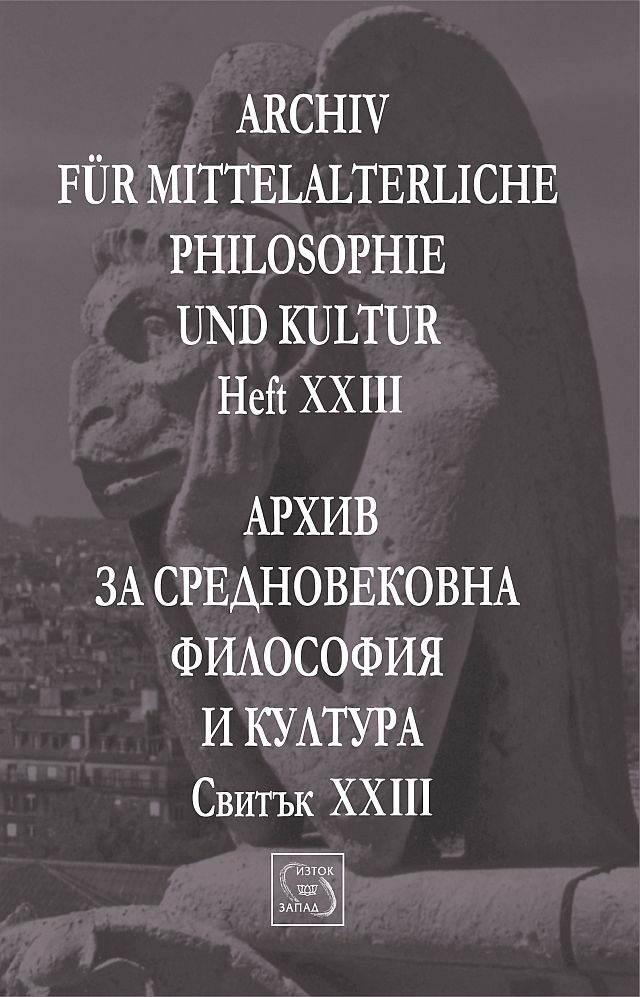Anselm of Canterbury on The Definition Of Human Nature
Anselm of Canterbury on The Definition Of Human Nature
Author(s): Simeon MladenovSubject(s): Christian Theology and Religion, Philosophy, Philosophy of Middle Ages
Published by: Издателство »Изток-Запад«
Keywords: Anselm of Canterbury; human nature; human being; freedom; free choice; justice; truth;
Summary/Abstract: The current paper presents the main results of a broader researchdevoted to discussing the problem of human nature according toAnselm of Canterbury. In the final period of his life, Anselm offersan unprecedented critique of the classical definition of human nature.Ruling out mortality, Anselm emphasizes that human naturewas created for eternal and blessed life, in which death has no part.However, Anselm never examined the problem in details and consequentlydid not offer a plausible solution to the arisen questions.If mortality could not be part of human nature, how do humansdiffer from the angels or God? What should be then considered asessential part of human nature? Is it possible that a new definitioncould be constructed? The current paper tries to discuss to someextent these questions and to offer a possible solution. Taking intoconsideration the entirety of Anselm’s teachings, the text shouldpropose that Anselm’s critique was in accordance with other significantparts of his philosophical thought – the problem of freechoice, truth, uprightness, the capacity of the will.
Journal: Архив за средновековна философия и култура
- Issue Year: 2017
- Issue No: 23
- Page Range: 100-126
- Page Count: 27
- Language: English
- Content File-PDF

